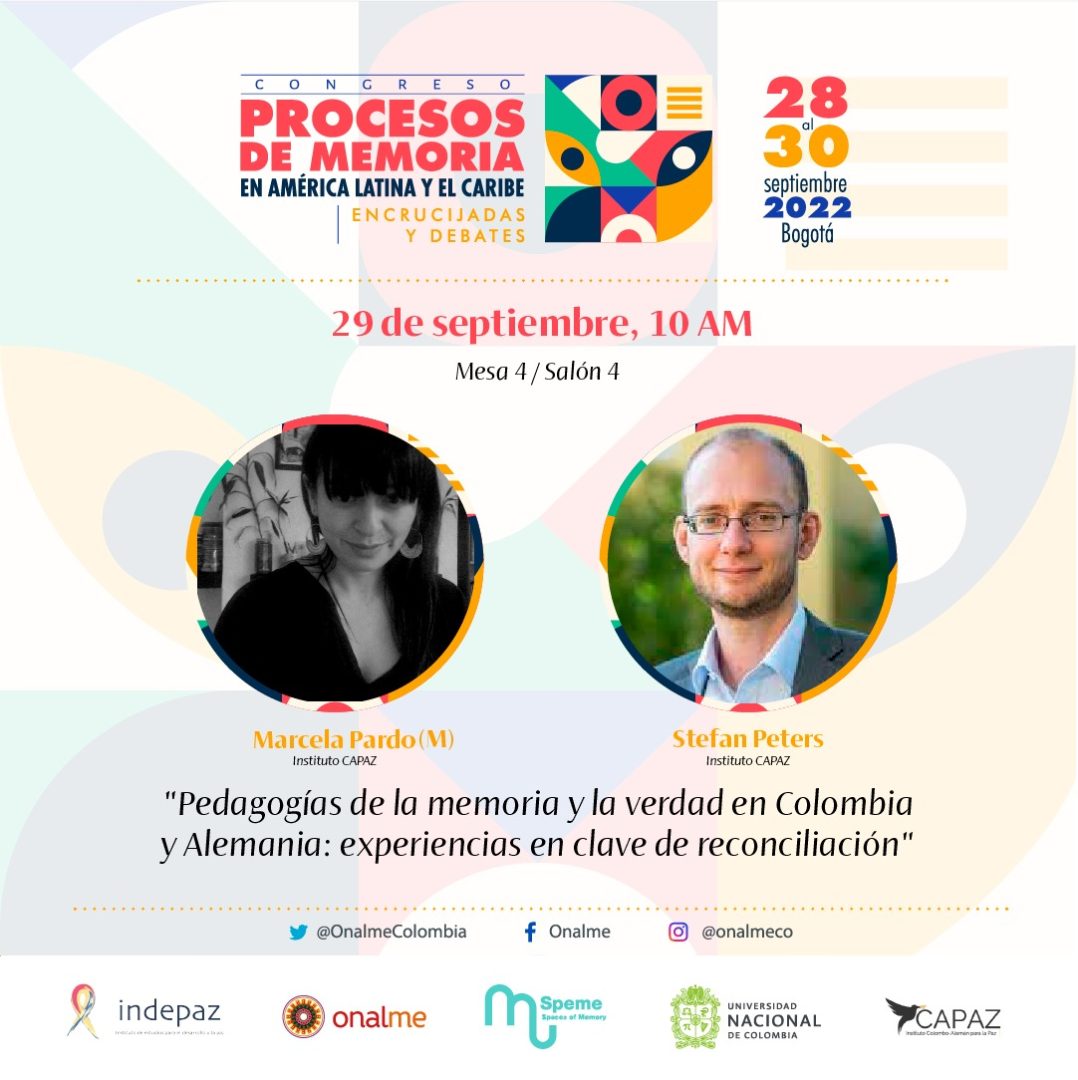
“People learn as they resist”: Capaz-supported historical memory processes in Latin America and the Caribbean congress kicks off

Opening ceremony of the Processes of Memory in Latin America and the Caribbean Congress. Universidad Nacional de Colombia. Photo: Carlos Nupia.
The Processes of Memory in Latin America and the Caribbean Congress, organised by the Institute of Studies for Development and Peace (INDEPAZ) and the National Memory Observatory at Universidad Nacional de Colombia with the support of various institutions including CAPAZ, was launched today with a lecture by Camilo González Posso, President of INDEPAZ, on the challenges of historical memory in Colombia.
One of the main themes of González Posso’s presentation was the subordination of memories. In his opinion, we must analyse why memory is reduced to testimonies, what the transformative potential of memory is, and how the “invisible victims” make memory in order to clarify the truth. These and other issues related to the challenge of building memory will be discussed until 30 September. The purpose of the Congress is to promote a debate on the processes of memory in order to understand the different dynamics and conceptualisations that are being developed on the continent. Also to consolidate alliances between academia, victims’ organisations, and government institutions so that they can play a leading role in peace processes. The event will feature more than 60 roundtable discussions on different aspects of memory building in Latin America and the Caribbean.
CAPAZ Academic Director Prof. Dr. Stefan Peters, Science Collaborators Marcela Pardo, Vanesa Giraldo, and Andrea Neria, and several professors from CAPAZ partner universities including Doris Santos (U. Nacional), Verena Dolle (U. Giessen), and José Fernando Serrano (U. Andes), will discuss topics such as pedagogies of memory in Colombia and Germany; literature, arts and memory; and truth and gender commissions. Dr. Reinhard Babel, Director of the DAAD Regional Office in Bogotá will also join the discussion on literature, living arts and memory.
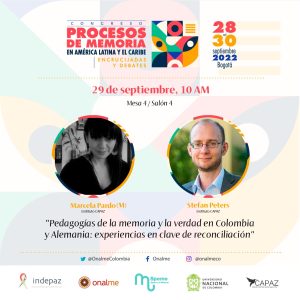
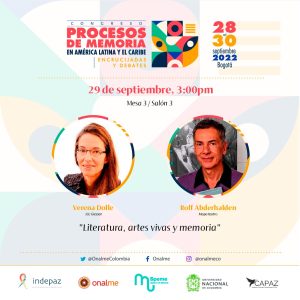
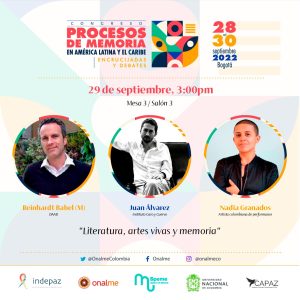
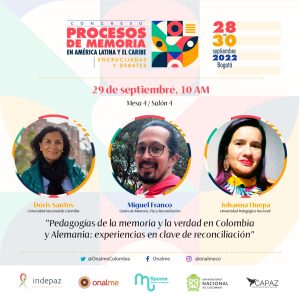
THE CONGRESS’ THEMATIC PANELS / LINES OF RESEARCH
- Memory and the future of democracies in Latin America from the perspective of memory processes.
- Theories of memory from Latin America and decolonial memories.
- Spatial-temporalities of memory, territories, places, and routes.
- Memory, conflicts, and political violence.
- Expressions of Memories and Human Rights.
- Truth, Justice, and Reparation Commissions.
- Media and Representations.
- Memory, art, and cultures.
- Memory and ethnicities.
- Sensory and affective memories.
- Memory, actors, subjects, and subjectivities.
- Memory, gender, and sexual diversity.
- Memory, museums, and virtual networks.
- Memory and social resistance.
- Memory, collective and environmental rights.
Find out more
- You can watch the first day of the event on the Universidad Nacional de Colombia YouTube channel.
- The event’s updated programme is available on the Observatorio Nacional de Memoria website.



